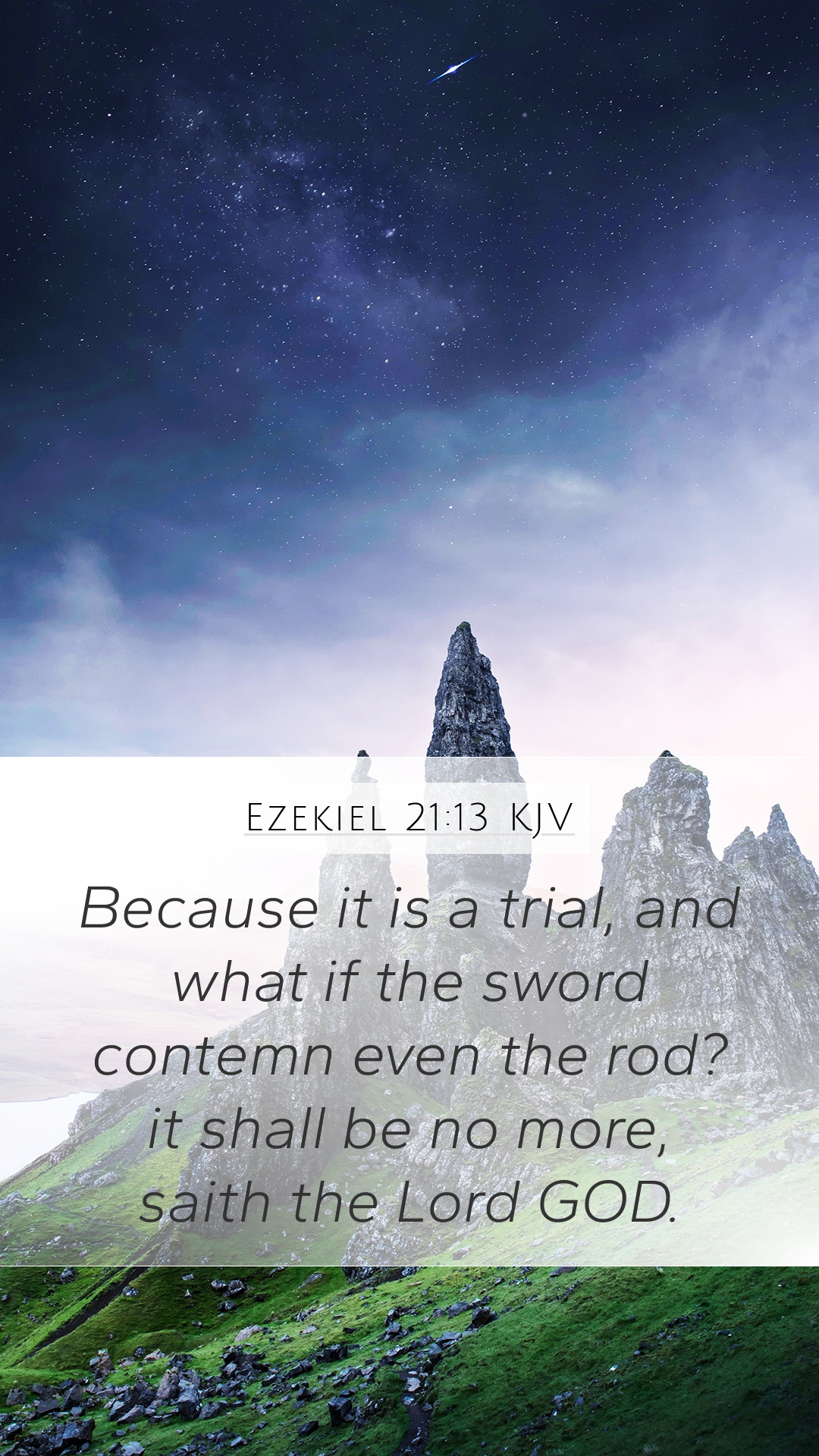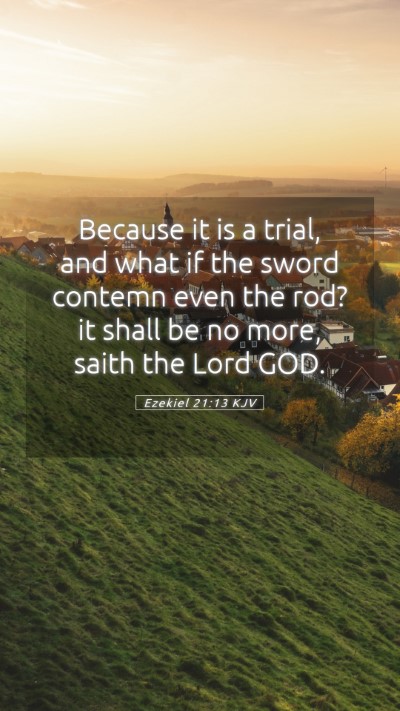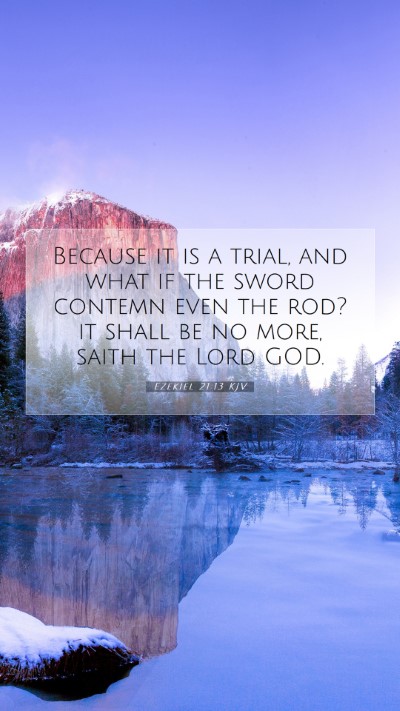Bible Verse Meaning: Ezekiel 21:13
The verse Ezekiel 21:13 states:
"For there is a trial, and what if the sword despises even the scepter? The sword shall not be borne in vain: for it is the sword of the Lord." (Ezekiel 21:13, KJV)
This powerful verse is embedded in a context of divine judgment and national calamity. Let's explore its meaning through insights drawn from prominent public domain commentaries.
Understanding the Context
Ezekiel was a prophet during the time of the Babylonian exile. His messages were directed toward the people of Israel, warning them of impending judgment and exile due to their unfaithfulness and sin against God.
Commentary Insights
-
Matthew Henry's Commentary:
Matthew Henry emphasizes the solemnity of this verse, highlighting the significant warning that the sword, a figure of God's judgment, should be heeded seriously. He underscores that though a king wields power (the scepter), God's judgment (the sword) is ultimate and not to be trifled with. This presents a potent reminder of the supremacy of divine authority over human governance.
-
Albert Barnes' Notes:
Barnes points out that the reference to the sword signifies divine retribution, indicating that God’s judgment might come through earthly rulers but ultimately serves a higher purpose. The ‘trial’ mentioned can be interpreted as the critical examination of Israel's sins, where the outcome is expected divine judgment. He explains that God uses instruments (like the Babylonian army) to carry out His will and that the sword does not stay idle; it strikes where God's judgment is due.
-
Adam Clarke's Commentary:
Clarke provides an analysis of the metaphoric language, suggesting the ‘trial’ refers to the consequences of Israel’s actions. He interprets the ‘sword despising the scepter’ as a metaphor for the overthrow of the rightful rulers of Israel by God’s decree. This reinforces the concept that human authority is subordinate to divine command and that rebellion against God's ways invites severe consequences.
Key Themes and Lessons
-
God's Sovereignty:
This verse strongly conveys the sovereignty of God over nations and rulers. It portrays that despite human authority, God's will prevails.
-
The Necessity of Righteousness:
The mention of judgment implies the need for nations and individuals to pursue righteousness to avoid the consequences of divine retribution.
-
Judgment and Hope:
Though the verse speaks of calamity, it remains a testament to God’s justice, signaling that judgment serves to correct and bring the faithful back to Him.
Applying Ezekiel 21:13 in Daily Life
Understanding this verse allows believers to reflect on the authority of God in our lives and lives of nations. It encourages a pursuit of holiness and obedience to divine commands. In times of judgment or societal pushback against faith, this scripture reassures the faithful of God's dominion.
Furthermore, these insights into Ezekiel 21:13 are valuable for Bible study groups, providing foundational material for discussions around how to interpret Bible verses and apply biblical teachings in contemporary society.
Cross References
- Jeremiah 25:31: Discusses the proclamation of judgment from the Lord.
- Isaiah 10:5-6: God’s use of Assyria as an instrument of judgment.
- Revelation 19:15: Symbolism of the sword as a sign of divine judgment in the end times.


